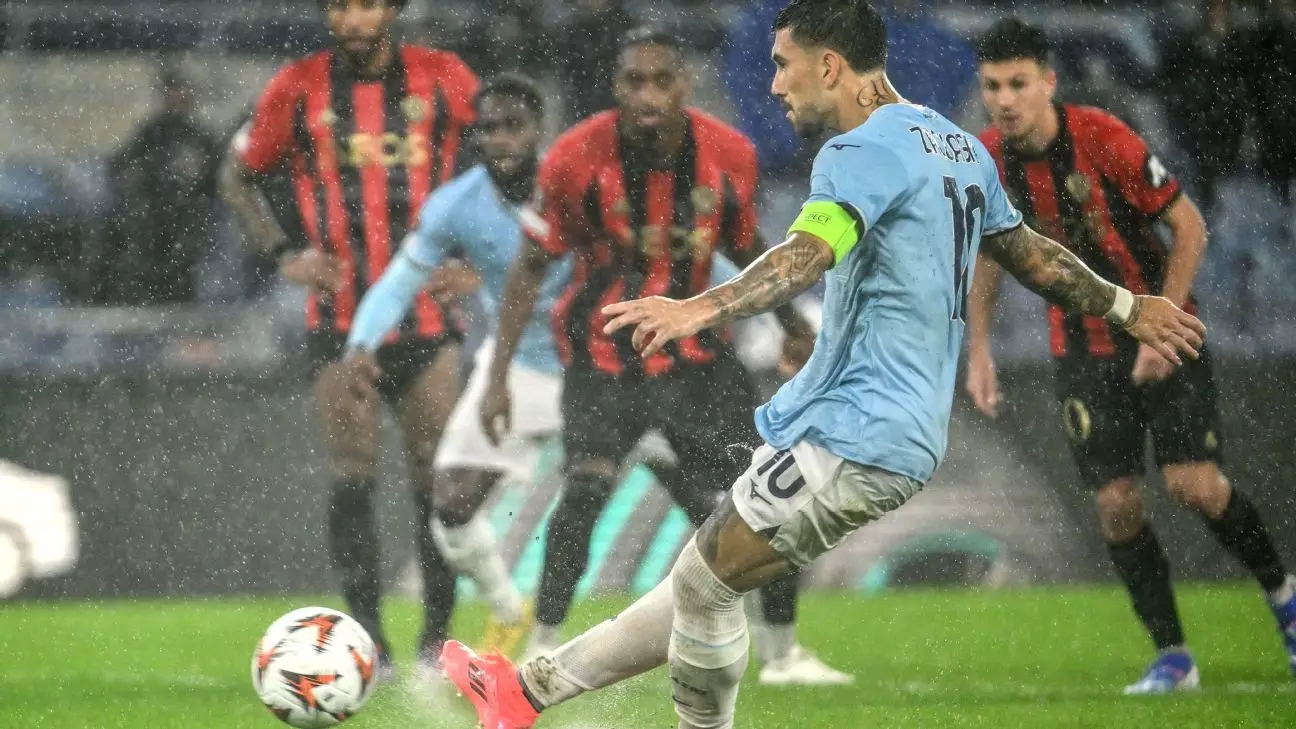In a significant move, UEFA has taken a firm stand against the growing issue of racism within football by sanctioning both Lazio and Atlético Madrid for the unacceptable behavior of their supporters. This decision, announced on Friday, underscores the serious implications that clubs face when their fan bases participate in discriminatory actions during European competitions. Specifically, Lazio has been hit with a closure of parts of their stadium for their upcoming Europa League clash against Porto on November 7, as a direct result of racist incidents that marred their recent victory against Nice. Additionally, the Italian team has been fined €45,000, while Atlético Madrid received a fine of €30,000 for similar transgressions by their fans during a Champions League match against Benfica.
The sanctions imposed reveal a dual approach of fines and stadium closures aimed at discouraging further acts of racism. For Lazio, two sections of their Curva Nord will be off-limits to fans, a move that not only affects the club’s immediate atmosphere but also serves as a warning to other clubs about the consequences of tolerating racist behavior. Meanwhile, Atlético Madrid faces a suspended ban on selling tickets to away supporters, signaling that ongoing violations could lead to even stricter measures in the future. Such punitive actions are necessary to demonstrate that football governing bodies are taking racism seriously; however, they also raise questions about their effectiveness in creating lasting change within club cultures.
While sanctions are essential, they merely address the symptoms of a deeper issue within football and society at large. The presence of racism in stadiums reflects broader societal attitudes, and, as such, clubs must take a proactive stance against the cultural roots of discrimination. This involves implementing educational programs aimed at both players and fans, as well as fostering a more inclusive environment within the sport. Clubs, alongside governing bodies like UEFA, should develop partnerships with anti-discrimination organizations to create initiatives that educate supporters and promote diversity.
Both clubs need to engage their fan base in meaningful conversations about racism and discrimination. Fans can be powerful agents of change when they understand the responsibility that comes with supporting their teams. Encouraging patrolling behavior among supporters and establishing clear consequences for those who refuse to comply with the ethos of respect and inclusion can help create an environment where racism is actively rejected.
Additionally, fans who oppose such behaviors must be empowered to speak out and take a stand against their peers. Together, clubs and supporters have the opportunity to rewrite the narrative surrounding football as a unifying global sport rather than one that permits hateful ideologies to fester.
While UEFA’s recent sanctions against Lazio and Atlético Madrid are a vital step towards combating racism in football, true change requires a comprehensive approach that includes education, community engagement, and a collective commitment to fostering respect both within stadia and beyond.

